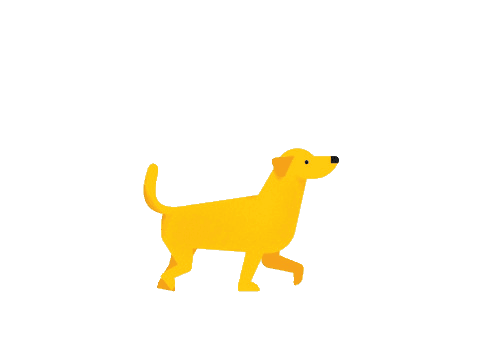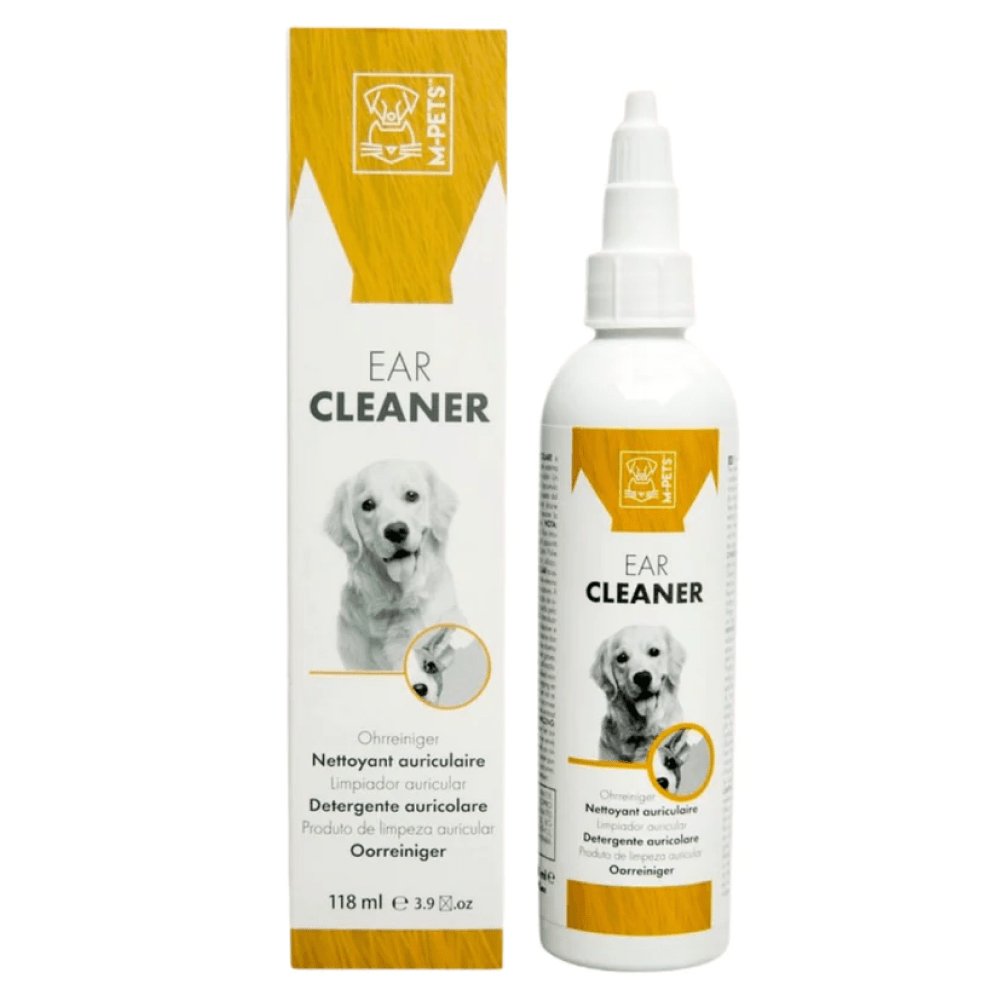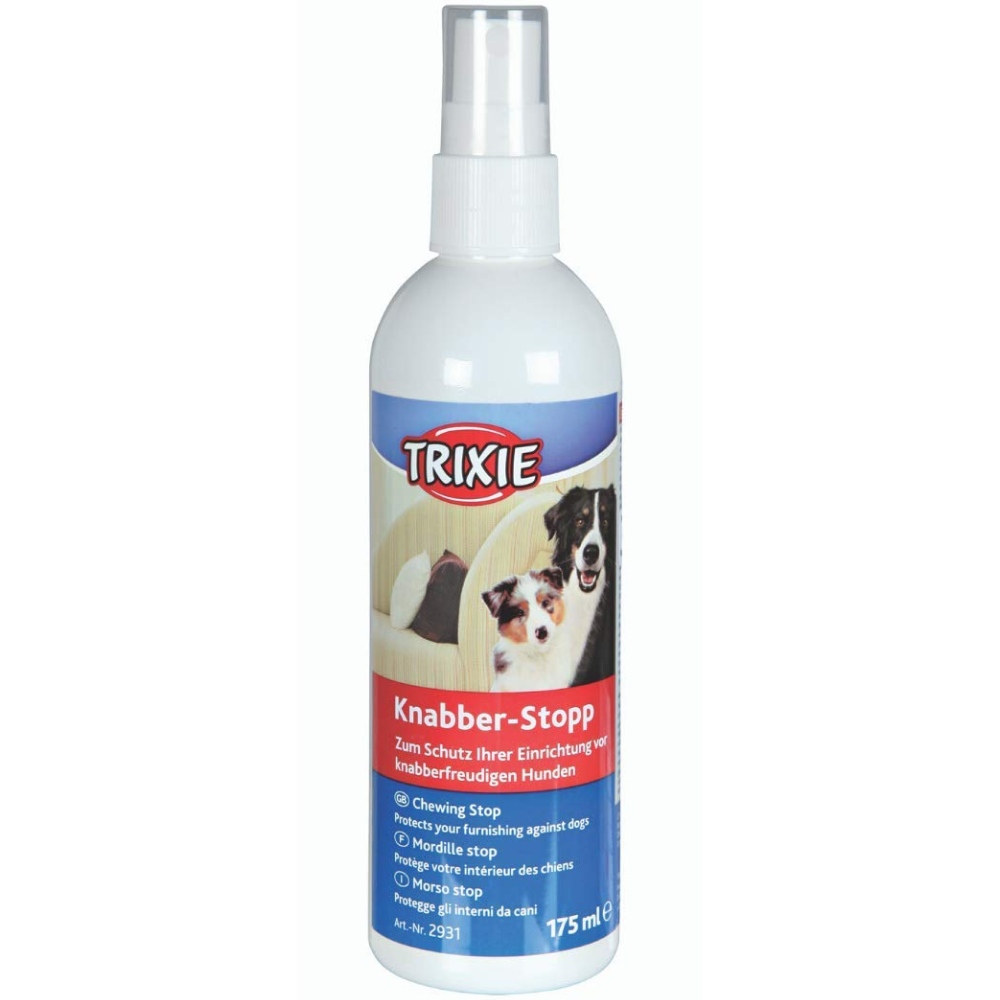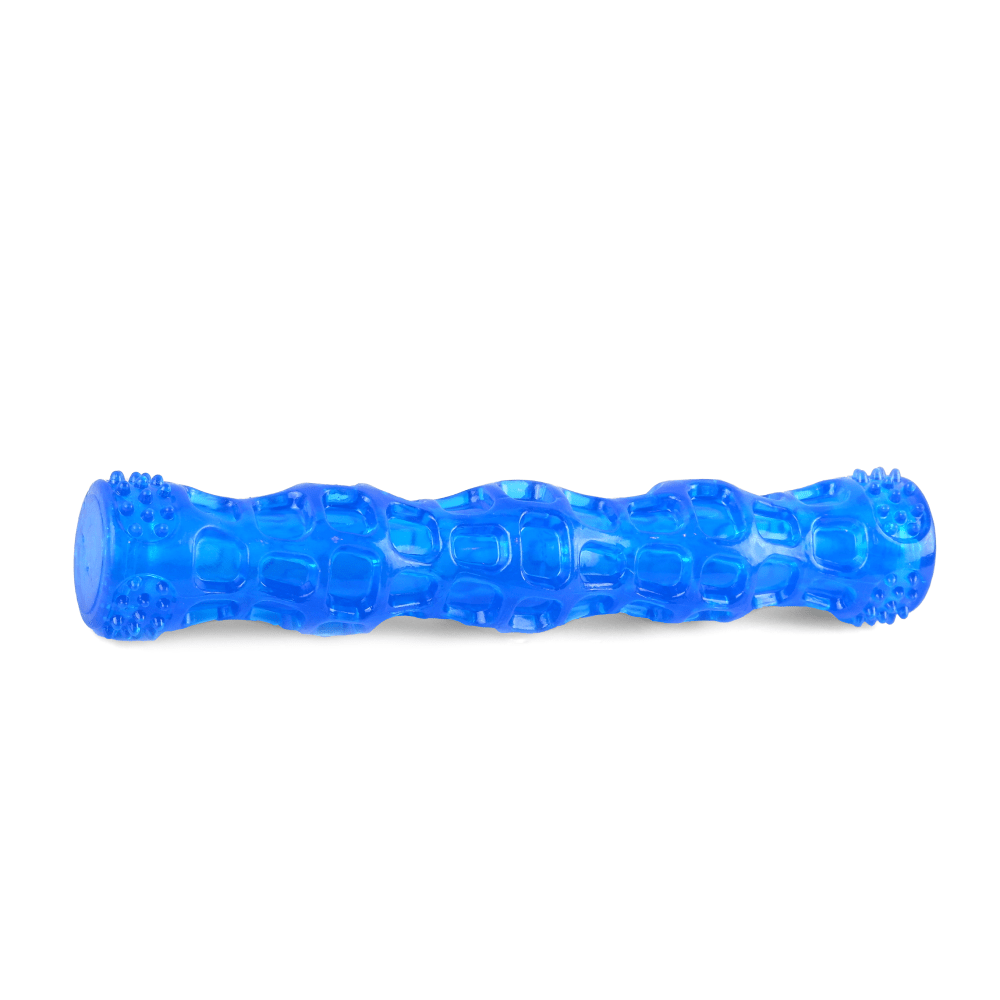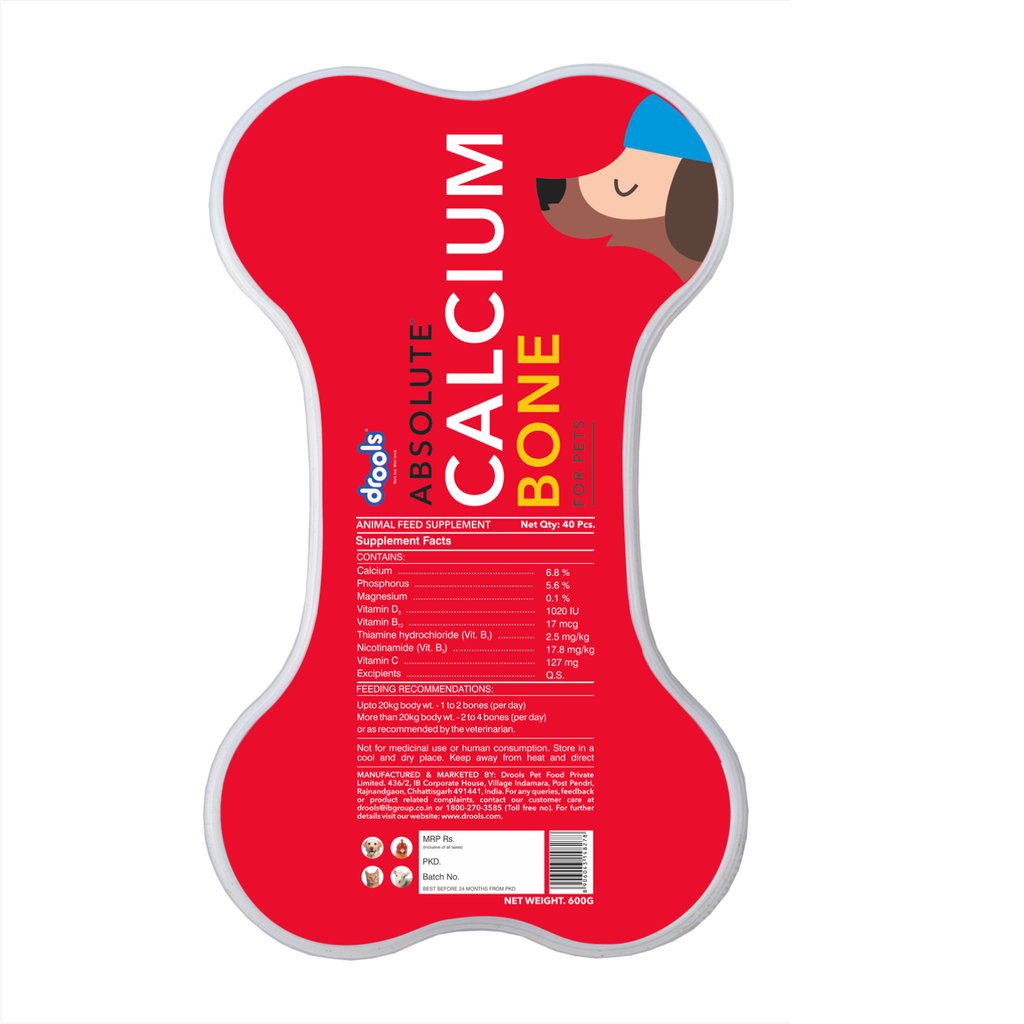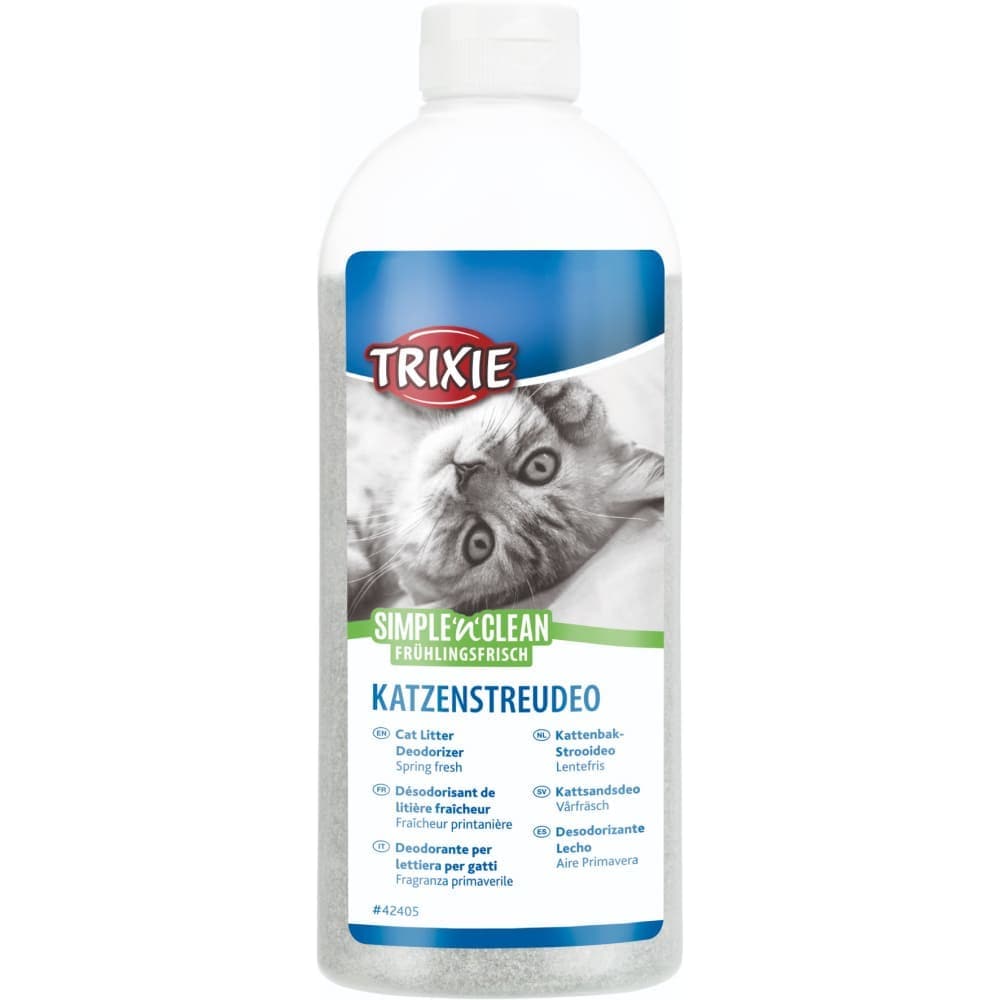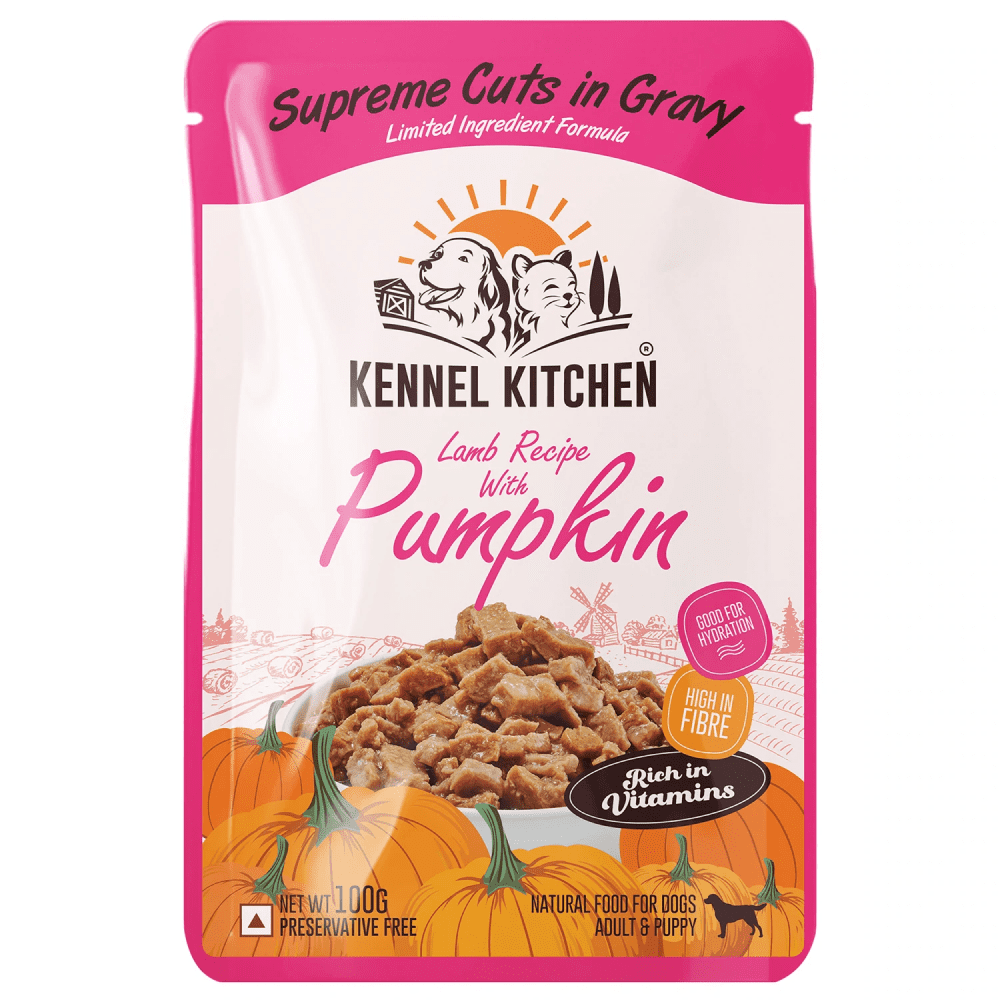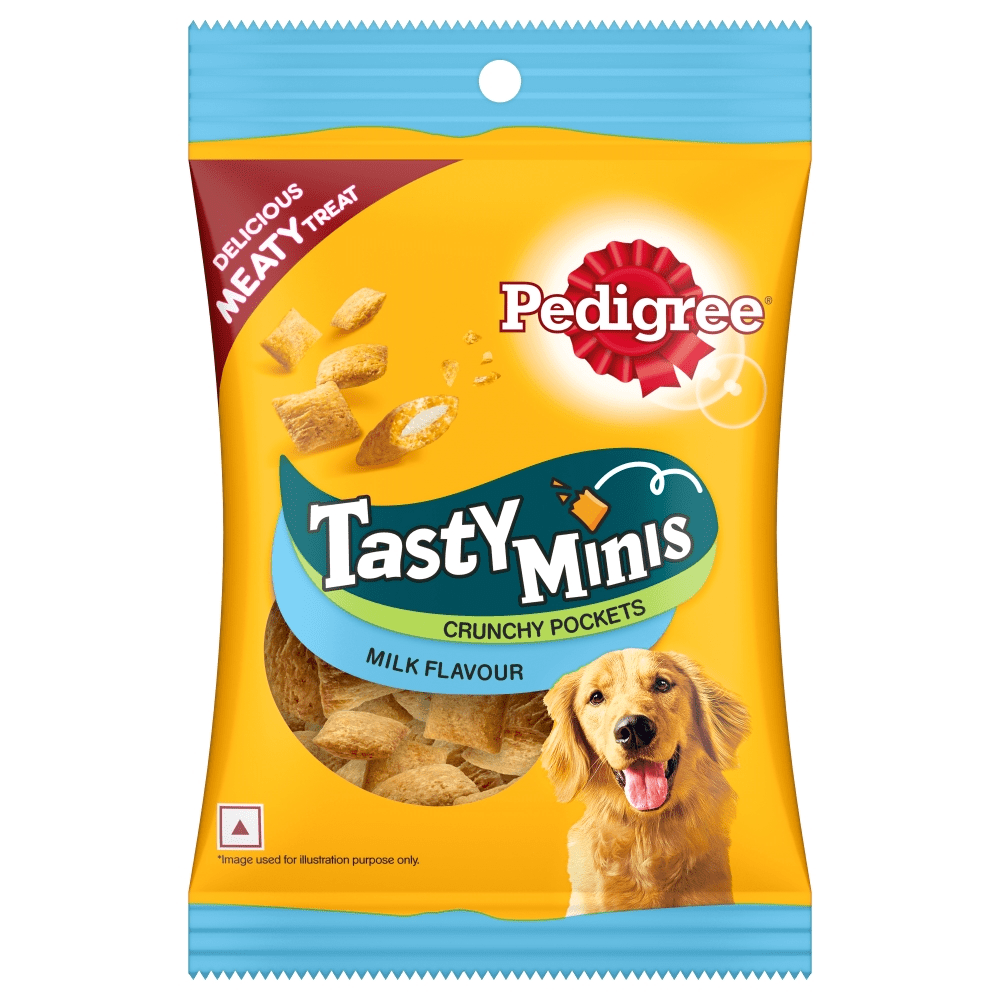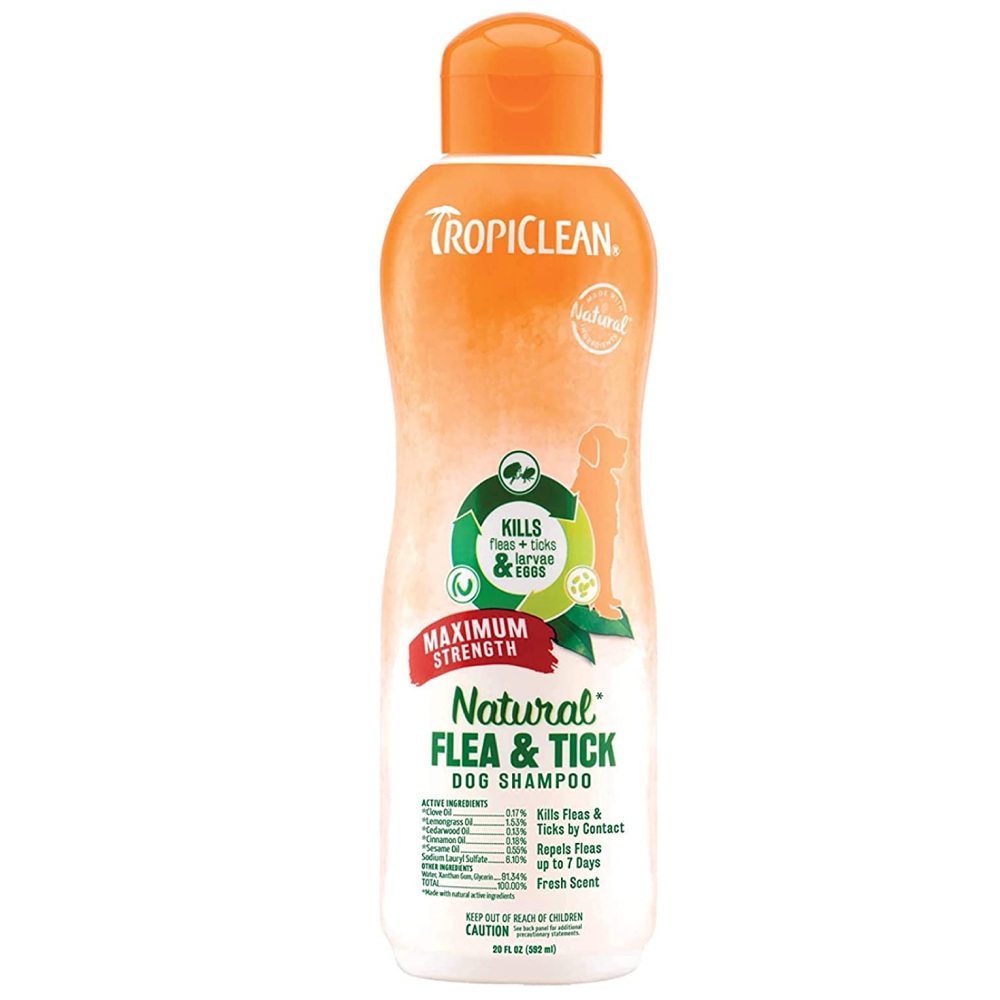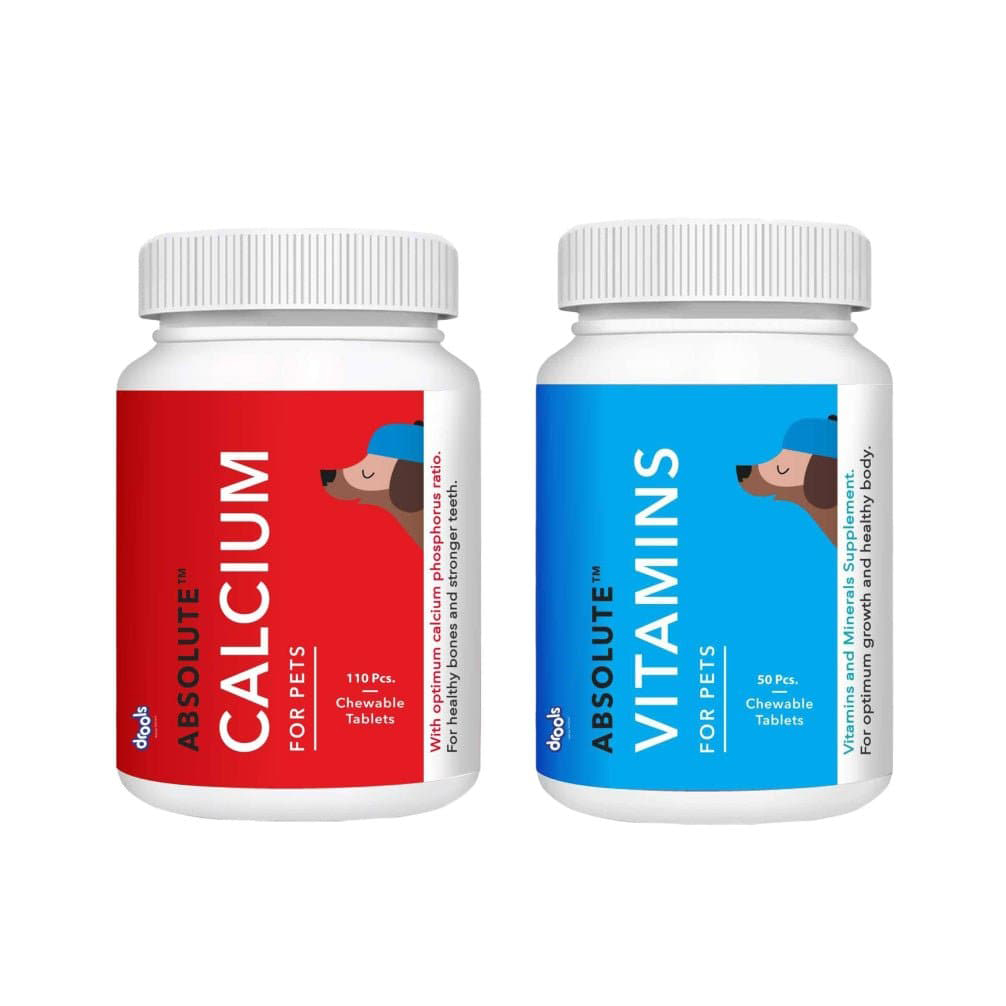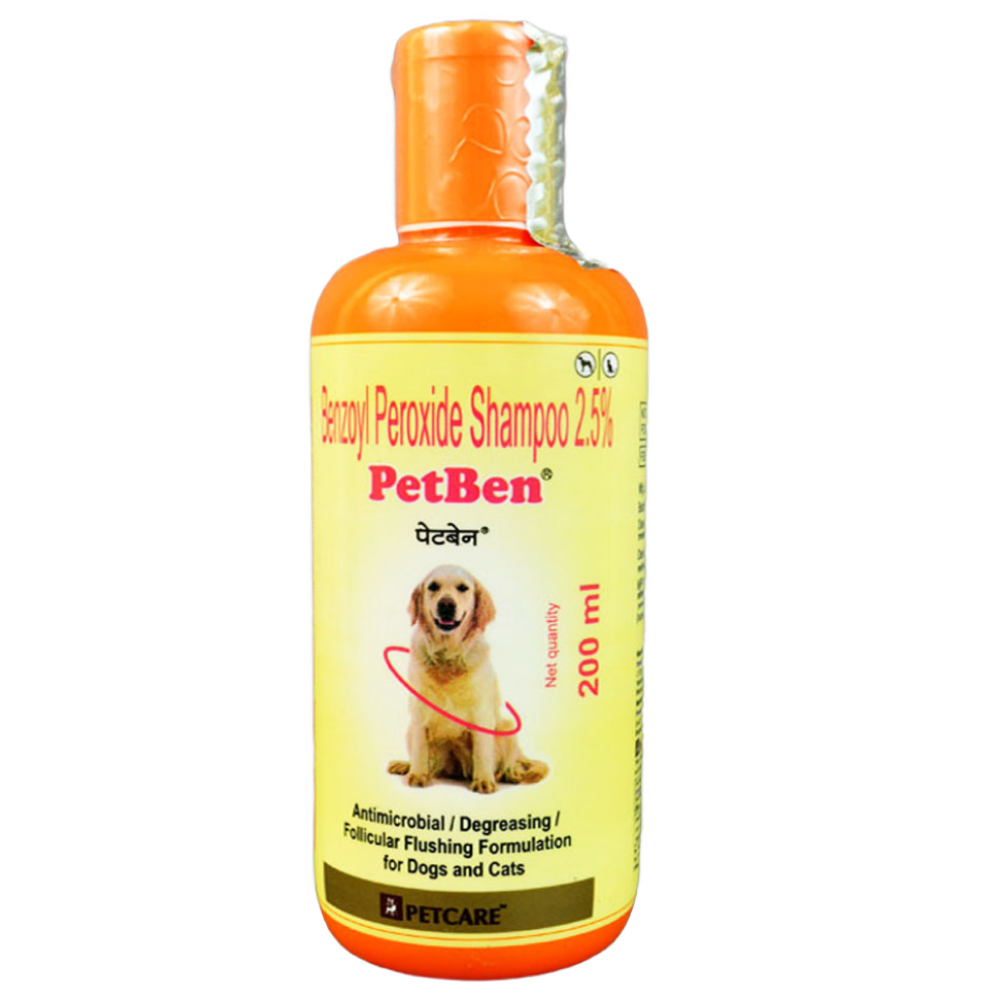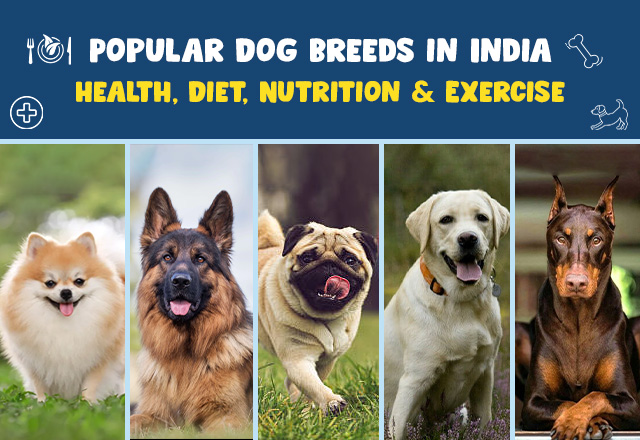
Are you planning to bring a dog home but not sure about the aspects that you need to consider post-adoption? If yes, we are here to help! In this article, we’ve listed a few of the dog breeds that are popular in India along with information regarding their health, diet, nutrition and exercise.
-
Pomeranian
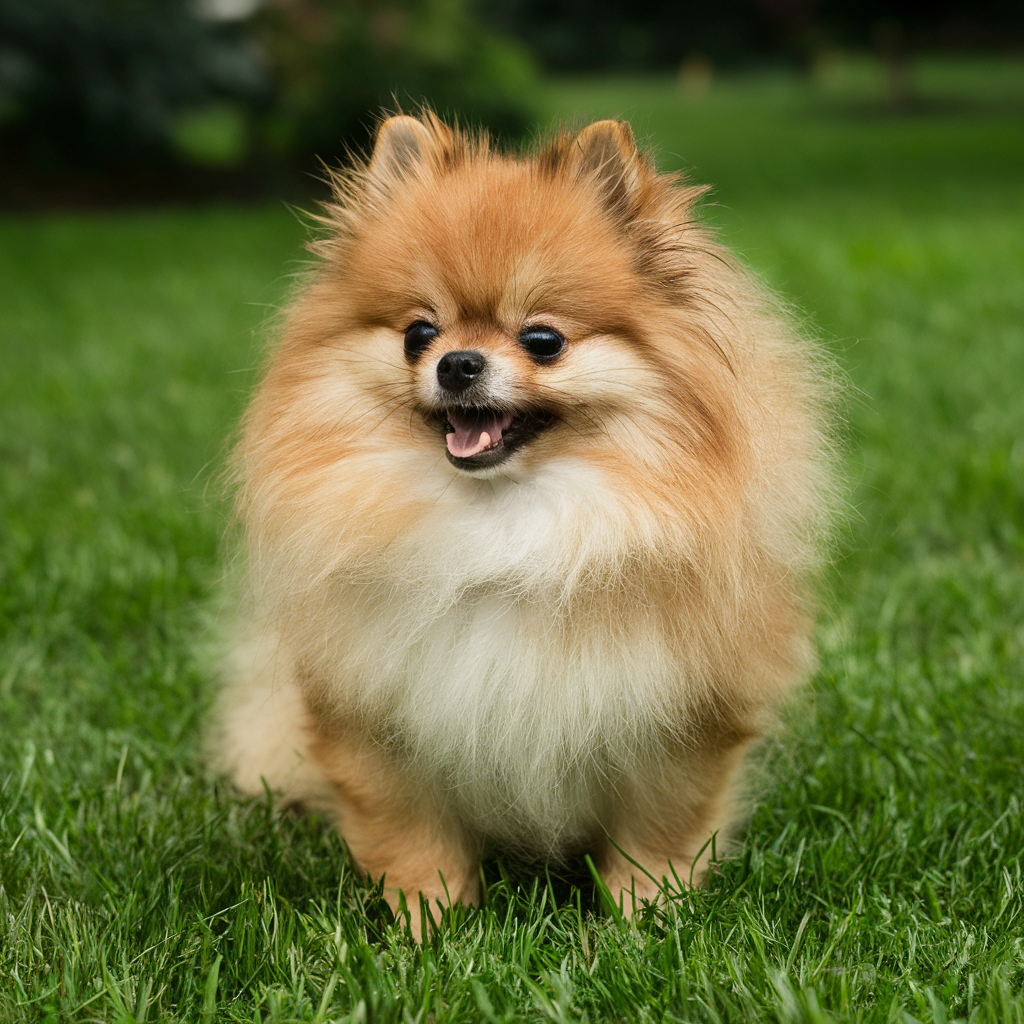
This small and fluffy breed resembles a miniature fox with a double coat. The dogs are energetic, friendly, playful and very protective of their human families. Their outer coat has long, erect hair and their undercoat is thick. The dogs have long coats and adapt perfectly to Indian weather conditions.
Health: Pomeranians are healthy little dogs but are easily susceptible to conditions like luxating Patella (kneecaps that slip out of place), collapsing tracheas, seizures, hypothyroidism, congestive heart failure and alopecia.
Diet: Being a toy dog, Pomeranians have a fast metabolism and burn energy at a high rate. They should be served food that is specially designed for small breed dogs and have smaller-sized kibbles that suit their small mouths.
Nutrition: A Pomeranian dog has the following nutritional requirements:
- Protein from good quality meat
- Essential fatty acids and omegas
- Natural vitamins and minerals from bone and plant sources
- Small amounts of carbohydrates from berries, herbs or vegetables
- High-moisture food and a generous quantity of drinking water
Exercise: Pomeranians are not very demanding with their exercise requirements. Short daily walks or a run in your backyard or the nearby pet-friendly park with their parents is enough to keep a Pom fit and healthy. They also enjoy interactive games that keep their mind busy and prevent boredom.
-
German Shepherd
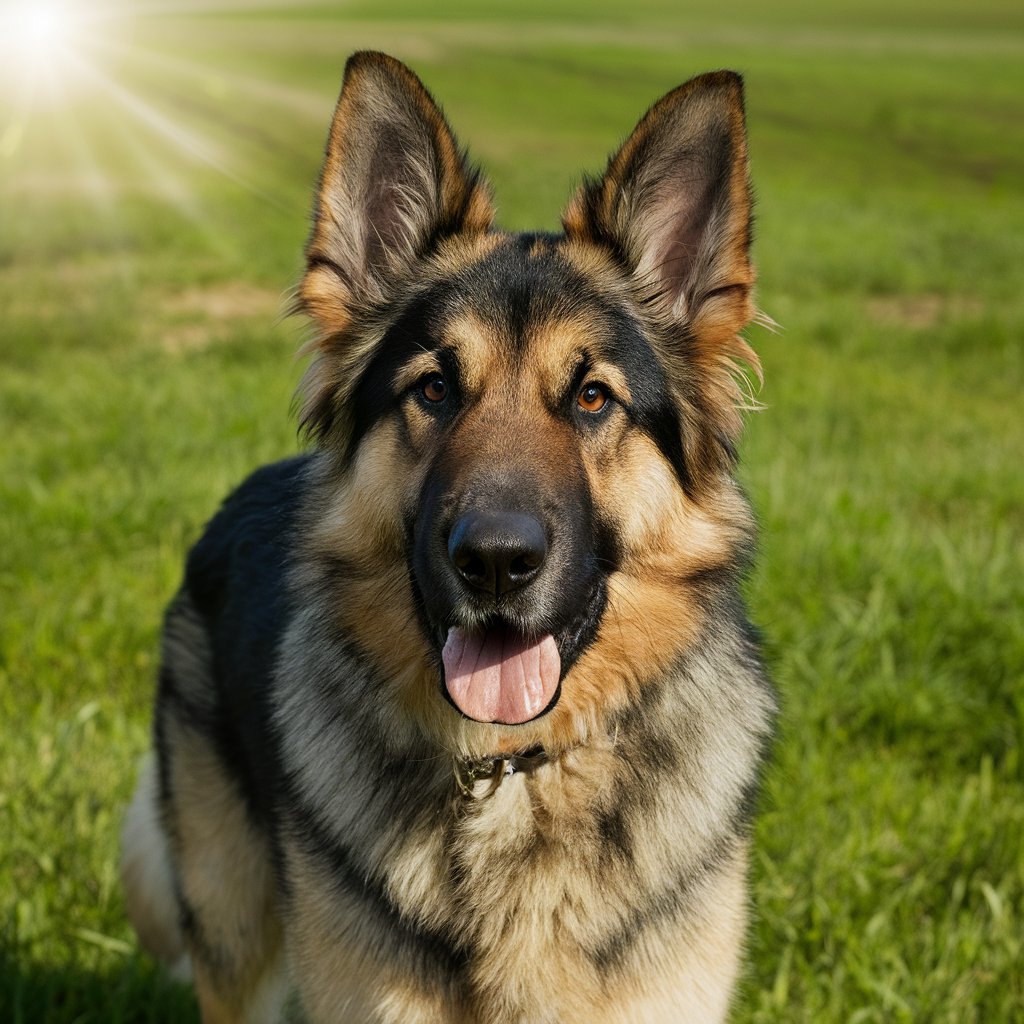
A German Shepherd is a large, muscular and agile dog that has high intelligence and noble character. They belong to one of the most popular dog breeds in India despite being originally from Germany. According to experts German Shepherds are loyal, courageous, confident and quick-learners, characters that make them ideal for companionship.
Health: German Shepherds are generally healthy dogs but sometimes fall prey to conditions like degenerative myelopathy and hip and elbow dysplasia. The dogs can also suffer from bloat and sudden life-threatening swelling of the abdomen.
Diet: A German Shepherd should be fed a diet with high-quality animal-based protein sources such as chicken, beef, lamb, turkey, fish and eggs.
Nutrition: A German Shepherd has the following nutritional requirements:
- Essential fatty acids and omegas
- Protein from high-quality meat sources
- Vitamins and minerals from bone and plant sources
- Small amounts of carbohydrates from herbs, berries and vegetables
- High moisture diet with a lot of drinking water
Exercise: German Shepherds are active dogs that need regular exercise. They require at least 1.2 to 2 hours of exercise daily to cater to their physical and mental needs. The activities can include jogging, long walks and playing fetch. They also benefit from interactive games and training sessions.
-
Pug

Historically, Pugs used to be mischievous companions of Chinese emperors and later took up the role of the mascot of Holland’s royal House of Orange. Today, the breed is adored by the majority of dog lovers. They come in silver, apricot-fawn with a black face mask or black colour. The dogs are known for their large round head, sparkling eyes and wrinkled brows. Pugs are ideal pet dogs and mingle well with humans, as the only pet or in a pack.
Health: The appealing eyes that Pugs are loved for are unfortunately one of their most vulnerable spots. They are prone to eye issues like corneal ulcers and dry eye. Being flat-faced, they also develop breathing problems and have difficulty adjusting to sunny, hot and humid weather.
Diet: Pugs must be offered bone, meat, offal and a small quantity of plant ingredients. Their raw diet also should feature 70% moisture to keep them well-hydrated.
Nutrition: A Pug has the following nutritional requirements:
- Protein from excellent animal sources
- Essential fatty acids and omegas
- Vitamins and minerals from bone and plant sources
- Small amounts of carbohydrates from herbs, berries and vegetables
- High-moisture food and a lot of clean drinking water
Exercise: On average, a Pug requires up to an hour of exercise per day. This can include short walks, with extra playtime and brain-stimulating activities. Several short walks are excellent for this breed as they prevent them from becoming tired and overheating.
-
Labrador Retriever
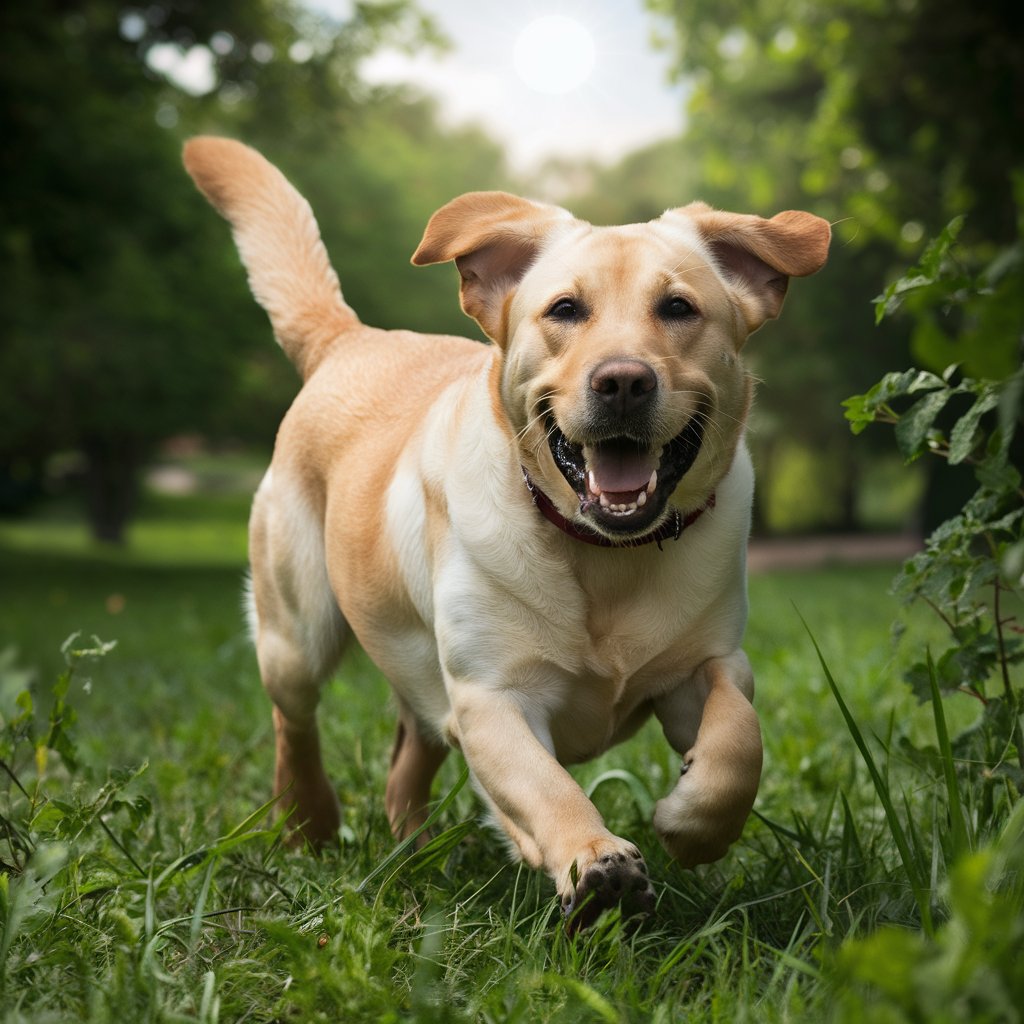
Labrador is one of the most suitable dog breeds for an Indian home. They are friendly, high-spirited and outgoing canines that offer a lot of affection to their human companions. They have dense, hard coats in yellow, black and luscious chocolate colours. The dogs easily bond with humans and also socialise with fellow canines.
Health: German Shepherds are overall healthy dogs but can suffer from elbow and hip dysplasia, heart disorders, eye conditions including progressive retinal atrophy and hereditary myopathy (muscle weakness).
Diet: Labradors require a protein-rich diet to fuel their muscles. Sources like chicken, fish and lamb work perfectly for labs. You should also avoid fillers like wheat, corn and by-products.
Nutrition: A Labrador Retriever has the following nutritional requirements:
- Small amounts of carbohydrates from vegetables, herbs and berries
- Essential fatty acids and omegas
- Protein from high-quality meat sources
- Natural vitamins and minerals from bone and plant sources
- High-moisture food and a good quantity of drinking water
Exercise: Being a highly energetic breed, Labs need a lot of exercise every day. If they are healthy, they need at least 80 minutes of high-quality exercise daily. If the dog is highly energetic it will need longer exercise sessions, whereas a relaxed pooch can settle for a little less.
-
Doberman Pinscher
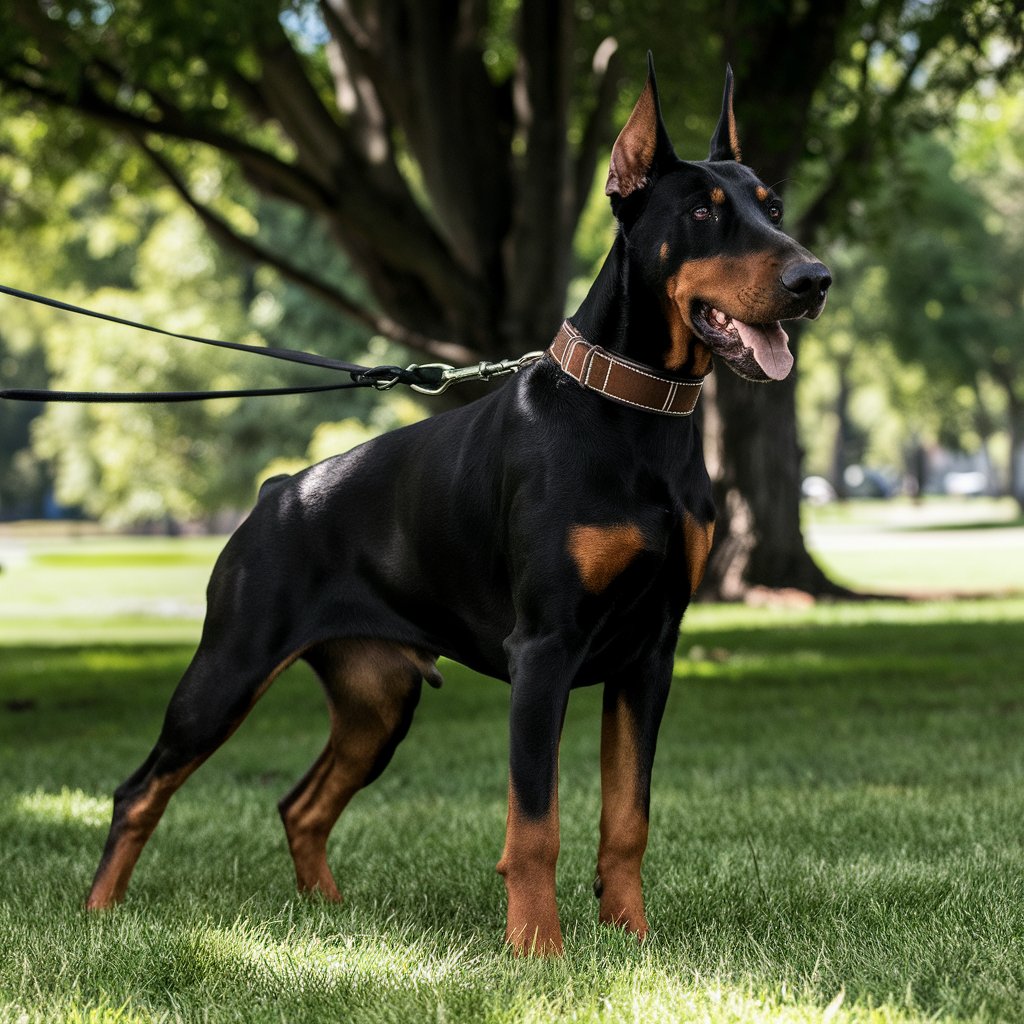
Doberman Pinscher is a sleek and powerful dog with a magnificent physique and keen intelligence. The fearless and vigilant breed is amongst the finest protection dogs in the world. Their body is sleek and covered with a shining coat of blue, red, fawn or black colour, with rust markings.
Health: Dobermans generally maintain good health but there are certain conditions that they are prone to. They often suffer from bloating, a life-threatening digestive disorder. They also fall prey to genetic conditions like hip dysplasia, dilated cardiomyopathy (enlarged heart), progressive retinal atrophy, Von Willebrand disease (a clotting disorder), hypothyroidism and albinism.
Diet: An ideal diet for a Doberman must be based on excellent-quality protein sources like chicken, beef and fish. It is also important to include vegetables and fruits in small amounts, besides carbohydrates like rice and plain pasta without sauce.
Nutrition: A Doberman Pinscher has the following nutritional requirements:
- Natural vitamins and minerals from bone and plant sources
- Small amounts of carbohydrates from vegetables/ herbs/ berries
- Essential Fatty acids and omegas
- Protein from high-quality meat sources
- High-moisture food and clean drinking water
Ending Note
The journey of pet parenthood is both fulfilling and challenging. A thorough knowledge of your dog’s breed combined with a tailored approach will ensure the optimal health and well-being of your furry baby. With the help of proper training, required nutrition, regular exercise and effective grooming, you can not only extend the healthy life of your dog but also establish a healthy relationship between you both.
Cat Vaccinations Explained: The Purr-fect Guide to Keeping Your Feline Healthy
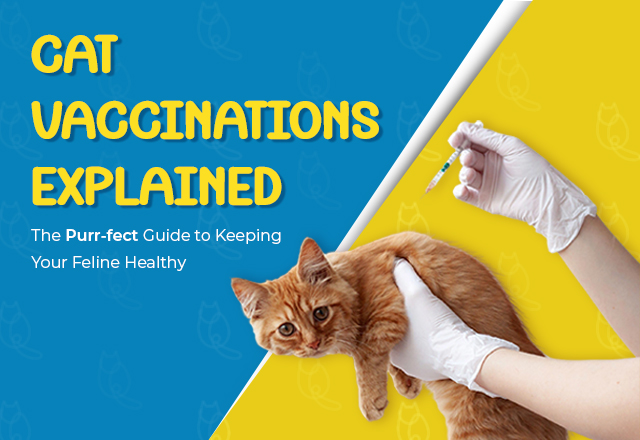
If you have just added a cute kitten to your family or adopted a rescued cat and need guidance for their vaccination, this article is for y...
Pawsandpaws | Apr 16, 2025How to Train Your Dog to 'Speak' on Command

Dog parents tend to speak to their dogs to communicate with them. But do you know that you can teach them to answer back? Training your dog...
Pawsandpaws | Apr 02, 2025